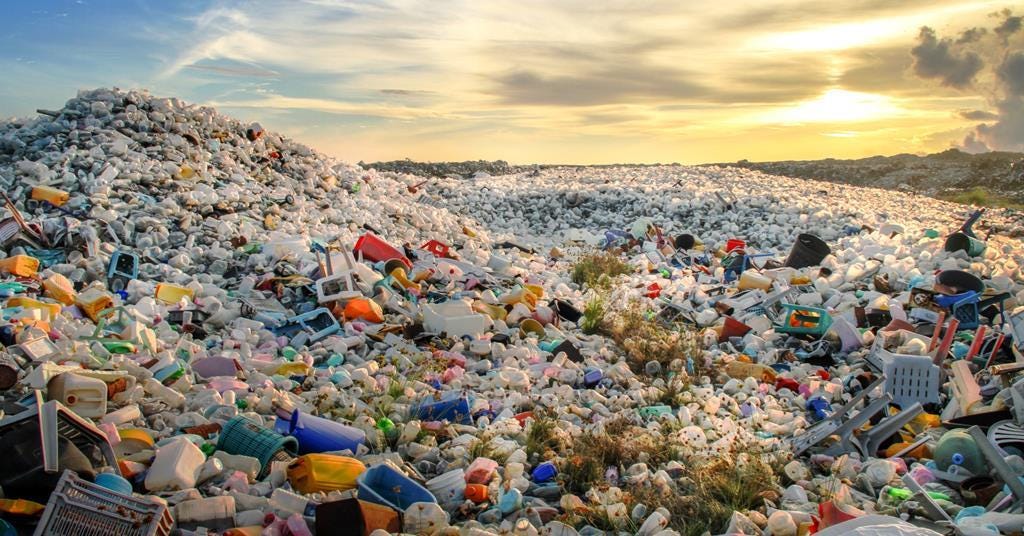Turning Plastic Waste into Fuel: The Promise of Biodiesel
In the global fight against plastic pollution and the quest for sustainable energy sources, an innovative solution has emerged: converting plastic waste into biodiesel. This promising technology not only addresses the pressing issue of plastic pollution but also offers a renewable alternative to traditional fossil fuels. In this blog post, we delve into the process of converting plastic waste into biodiesel, its environmental benefits, and the challenges and opportunities it presents.
Table of Contents
The Problem of Plastic Pollution

Source: Medium.com
Plastic pollution has reached alarming levels, with millions of tons of plastic waste entering our oceans and landfills every year. The environmental impact of plastic pollution is far-reaching, endangering marine life, contaminating ecosystems, and contributing to climate change through the release of greenhouse gases during production and disposal.
Efforts to mitigate plastic pollution have focused on reducing single-use plastics, recycling, and promoting alternative materials. However, these strategies alone cannot keep pace with the ever-growing volume of plastic waste generated globally. Innovative solutions are needed to tackle this multifaceted challenge.
Biodiesel: A Renewable Energy Source
Biodiesel, derived from organic sources such as vegetable oils and animal fats, offers a renewable alternative to conventional diesel fuel. It is biodegradable, non-toxic, and produces fewer greenhouse gas emissions compared to petroleum diesel when burned. These environmental benefits have led to increased interest in biodiesel as a sustainable energy source.
Traditionally, biodiesel has been produced from edible oils such as soybean oil and palm oil. However, concerns about food security, deforestation, and land use change have spurred research into alternative feedstocks for biodiesel production.
Converting Plastic Waste into Biodiesel
One promising approach to biodiesel production involves the conversion of plastic waste into fuel through a process called pyrolysis. Pyrolysis involves heating plastic waste in the absence of oxygen to break it down into smaller hydrocarbon molecules, which can then be refined into biodiesel.
The process begins with the collection and sorting of plastic waste, which is then shredded into smaller pieces. These pieces are fed into a pyrolysis reactor, where they are heated to temperatures ranging from 300 to 800 degrees Celsius. Under these conditions, the long polymer chains that make up plastic break apart, yielding a mixture of gases, liquids, and char.
The liquid fraction contains hydrocarbons that can be further refined into biodiesel through processes such as distillation and catalytic upgrading. The resulting biodiesel can be blended with conventional diesel fuel or used as a standalone fuel in diesel engines.
Environmental Benefits
Converting plastic waste into biodiesel offers several environmental benefits:
- Reduction of Plastic Pollution: By diverting plastic waste from landfills and oceans, the process helps mitigate the environmental impact of plastic pollution.
- Resource Conservation: Recycling plastic waste into fuel reduces the demand for virgin fossil fuels, conserving finite natural resources.
- Greenhouse Gas Emissions Reduction: Biodiesel produced from plastic waste emits fewer greenhouse gases compared to traditional diesel fuel, contributing to climate change mitigation efforts.
- Energy Independence: Utilizing biodiesel derived from domestic sources reduces dependence on imported fossil fuels, enhancing energy security.
Challenges and Opportunities
While the conversion of plastic waste into biodiesel holds great promise, several challenges must be addressed to realize its full potential:
- Technological Hurdles: Developing efficient and cost-effective pyrolysis technologies capable of handling diverse types of plastic waste is essential.
- Quality Control: Ensuring the quality and purity of the biodiesel produced from plastic waste is crucial to its acceptance and adoption in the market.
- Economic Viability: Achieving economic competitiveness with conventional diesel fuel remains a challenge, requiring innovations in process efficiency and scale.
- Environmental Considerations: Care must be taken to minimize the environmental footprint of pyrolysis processes, including the management of byproducts and emissions.
Despite these challenges, the conversion of plastic waste into biodiesel presents significant opportunities for innovation, investment, and collaboration. Governments, industries, and research institutions play a crucial role in supporting research and development efforts and incentivizing the adoption of sustainable technologies.
Conclusion
Converting plastic waste into biodiesel offers a promising solution to the twin challenges of plastic pollution and fossil fuel dependence. By harnessing the power of pyrolysis technology, we can transform a major environmental liability into a valuable resource for clean energy production. However, realizing the full potential of this technology requires concerted efforts from stakeholders across sectors to overcome technical, economic, and environmental barriers. With continued innovation and investment, biodiesel derived from plastic waste could play a significant role in building a more sustainable and resilient energy future.
For More such content, follow us, you can also read multiple articles like this here
